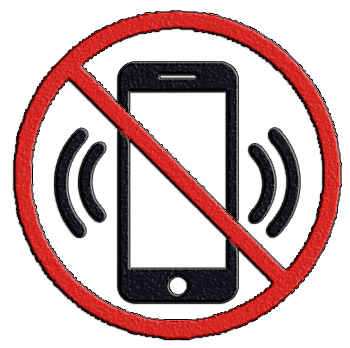20 Reasons Why Cell Phones Should Not Be Allowed in School

Distraction
Cell phones are a major distraction in the classroom, leading to decreased focus on learning and academic performance.
Disruption
Incoming calls, text messages, and notifications disrupt the learning environment for both students and teachers.
Cheating
Cell phones make it easier for students to cheat on tests and assignments by accessing information or communicating with peers.
Cyberbullying
Cell phones can be used as a tool for cyberbullying, allowing students to send hurtful messages or share inappropriate content.
Socialization
Excessive use of cell phones in school can hinder face-to-face social interaction and interpersonal skills development.
Sleep Disruption
Students may stay up late using their phones, leading to sleep deprivation and negatively impacting their ability to concentrate in class.
Health Risks
Prolonged exposure to cell phone radiation has been linked to various health risks, including headaches, eyestrain, and disrupted sleep patterns.
Theft and Loss
Cell phones are valuable items that can be easily lost or stolen, leading to disruptions and potential safety concerns within the school environment.
Inequality
Not all students have access to the same quality of cell phones or mobile data plans, creating disparities and potential social exclusion among peers.
Academic Integrity
Allowing cell phones in school undermines the principles of academic integrity by providing opportunities for dishonest behavior.
Addiction
Excessive use of cell phones can lead to addiction-like behaviors, impacting students’ ability to focus on their studies and engage in other activities.
Privacy Concerns
Cell phones may compromise the privacy of students and teachers through unauthorized recording or sharing of sensitive information.
Disturbed Learning Environment
Vibrating or ringing cell phones can disrupt the flow of a lesson and interfere with students’ ability to concentrate.
Reduced Physical Activity
Students may spend their free time on their phones rather than engaging in physical activity during recess or breaks.
Over-reliance on Technology
Allowing cell phones in school may foster an over-reliance on technology for learning, neglecting the development of critical thinking and problem-solving skills.
Decreased Attention Span
Constant access to cell phones can shorten students’ attention spans, making it more difficult for them to focus on lengthy or complex tasks.
Negative Impact on Relationships
Excessive use of cell phones can strain relationships with peers, teachers, and family members by reducing face-to-face interaction and communication.
Disrupted Classroom Management
Teachers must spend valuable class time addressing cell phone-related issues instead of focusing on instruction and learning activities.
Academic Performance
Research suggests a negative correlation between cell phone use in school and academic performance, with higher usage associated with lower grades.
Safety Concerns
In emergency situations, cell phone usage can hinder effective communication and response protocols within the school community.
Interesting Fact

A study published in the Journal of Communication Education found that students who were not allowed to use their phones in class performed better on exams compared to those who had unrestricted access.












